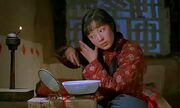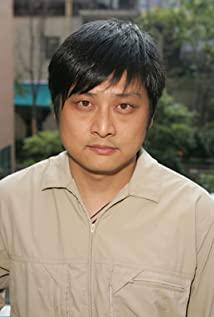A man's relationship with his father ultimately shapes his entire life. I have always felt that the father-son relationship is one of the most complex and subtle emotional connections in the world. The son will define himself in confrontation and reconciliation.
The role of father is itself a symbol of authority. In family relations, this authority is detached from all social identities and positions and rises above it. From the son's point of view, this authority is not just domination and authority, but disintegration and destruction. Because fatherly authority has been deified, and fathers have been idolized, you cannot reason with God. The resulting embarrassment, discomfort, and conflict run through almost the entirety of the father-son relationship. How to resolve this more "Cold War-style" emotional conflict will become a lifelong problem for most sons and fathers.
"Bath" is not only a nostalgic nostalgia for the traditional culture of old Beijing, but also a panoramic display of the conflict and reconciliation between father and son. The bathhouse appears to be a source of conflict, but it is actually just a backdrop for objectification. Because the conflict between father and son is allegorical, rebellion is necessary for the son's self-definition and growth, and control is the father's almost instinctual protection and assertion of authority.
The old man played by Zhu Xu is a character intertwined with conflicts and contradictions: the father-son relationship with the Daming type is already in the explosive stage, while the father-son relationship with the Erming type is still at the stage of idolization. This kind of conflict itself is unresolved, because no matter what cultural background, silent confrontation is the most common and most acceptable form of conflict. What's more, Daming works in Shenzhen in the movie, which has already broken away from the tradition of old Beijing culture, and the values and vision patterns have become a potential source of conflict. The only solution is a compromise between the father and the son. The movie solves this problem unexpectedly in the same way that the old fashioned pass away. It seems to be solved, but in fact it is avoided, or in other words, the authority of the father is maintained in a way of avoidance.
When his father died, the conflict persisted in another way—Er Ming became his father's shadow, reminding Da Ming all the time. Everyone goes back to the bathhouse at the end of the movie, which doesn't mean it's a victory for the father. At this time, Daming is no longer the role of a son, but another father, Erming's "father". Through the bathhouse, he will discover the joys, sorrows and sorrows of his father here, as well as the limitations of his father's times. Therefore, the return is a warm tribute, a tribute to the tradition, a tribute to the father-son relationship, and a tribute to the father!
View more about Shower reviews










